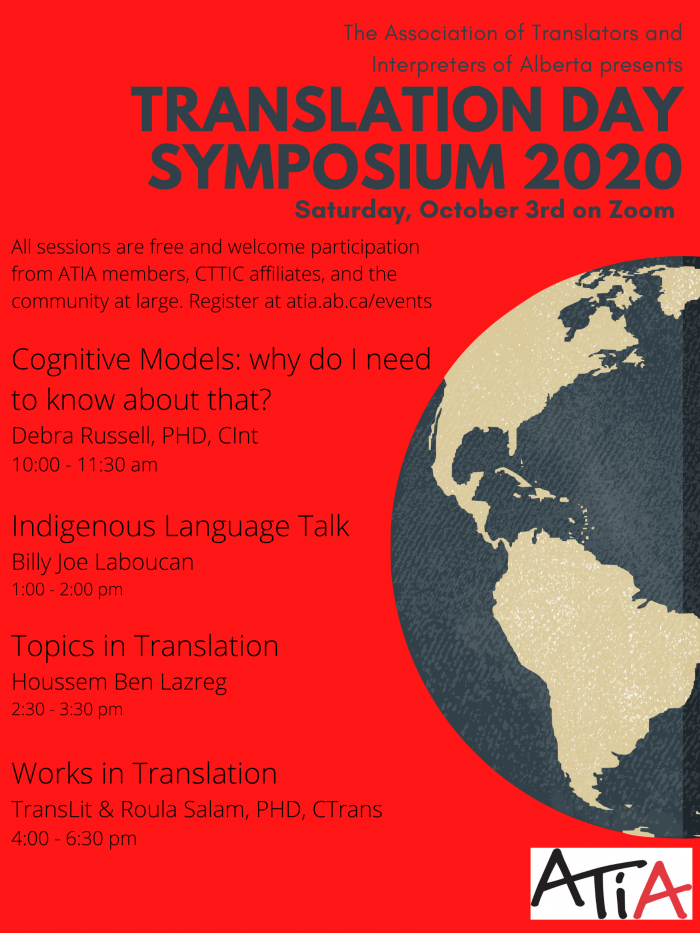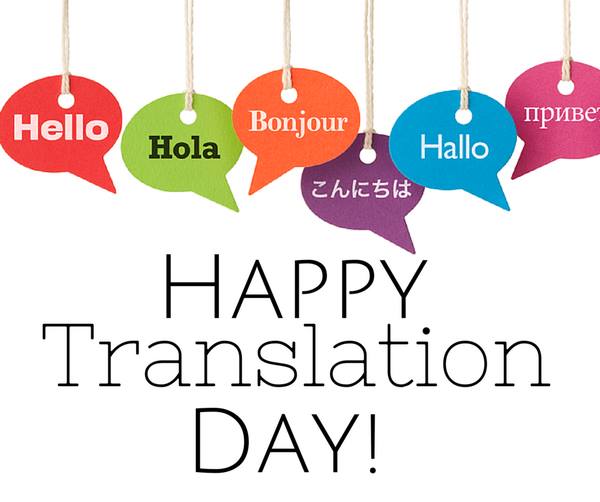
Many ATIA members may have met Paula Kirman of the Canadian Freelance Union (CFU) last year at the AGM in Edmonton, as she gave a presentation to our members on the benefits of joining the CFU. Thank you for joining us, Paula!
Q: Why don’t you start by telling us who can join the Canadian Freelance Union.
A: The Canadian Freelance Union is a community chapter of Unifor, Canada’s largest private-sector union. Membership is aimed at freelancers working in the media, communications, and information fields, and this can include interpreting and translating. Our members also include writers, graphic designers, website designers, social media consultants, photographers, and videographers.
Q: As you know, many associate and certified members of the ATIA do freelance or independent contracting work. Can you tell us about the benefits of joining the CFU for Translators and Interpreters?
A: Membership in the CFU offers group rates on insurance: health, home, auto, and liability. As many of us who are self-employed know, insurance can be hard to get – and very expensive. The CFU also offers grievance support, so if you have a client who isn’t paying, you can discuss the situation with someone at the union to decide the best course of action. As well, the CFU has a member’s directory that is available to potential clients who want to hire someone who is unionized. There is also the potential to connect with and socialize with other freelancers. Membership in the CFU helps build solidarity for freelancers in the labour movement. We’re stronger together.
Q: Many are drawn to freelancing because it affords translators and interpreters the independence and self-determination of being selective of projects and clients, allowing us to pursue work that we are passionate about. However, this independence can have its downside when it comes to clients’ non-payment of fees or deceptive contracts. How can the CFU support freelancers with problematic clients?
A: As I mentioned before, the CFU offers grievance support when it comes to non-paying clients. The situation will be discussed with the member, and an action plan created. Sometimes all it takes is a phone call from someone at the CFU to your client to convince them to pay up. CFU members are welcome to submit questions concerning contracts. Something the CFU is currently working on is more comprehensive contract advice, and contract templates.
Q: Freelancing also has many draws in terms of lifestyle: building your own schedule, choosing your workload, flexibility, and independence. Unfortunately, this can also mean precarious labour, lack of access to health benefits, and loneliness. What services does the CFU offer to combat these commonly-faced hardships for freelancers?
A: Joining the CFU helps build solidarity among freelancers. You can be connected to other freelancers in your area. Here in Edmonton, there is an Edmonton Freelancers Facebook group that I moderate, and we have regular meet-ups. Meet-ups have happened in other cities as well. The union also offers group rates on health, home, auto, and liability insurance, which can be hard to get (and expensive) for precarious workers. Finally, the CFU gives a voice to freelancers in the labour movement, and advocates on behalf of us by standing up for issues affecting us as precarious workers. If you check out our website (canadianfreelanceunion.ca) and social media, you will see articles and information posted to help inform freelancers about pitfalls to avoid and issues of concern, such as the persecution of journalists, shady websites that “hire” freelancers at low rates, and related issues.
Q: Certified members of the ATIA must carry errors and omissions insurance, as it is one of the critical ways that the ATIA protects both its members and the public. This insurance does not come cheap, and can be particularly unaffordable for freelancers or independent contractors. Can you tell us a little bit about insurance plans tailored for freelancers?
A: The Errors and Omissions insurance offered via the CFU includes Misrepresentation, Professional Negligence, Inaccurate Advice, Libel and Slander, and lost documents. It is an individual plan, not a group one, which means each person would have to get their own quote to see what best suits their needs.
Q: Thanks again for joining us to inform the ATIA’s members about the Canadian Freelance Union! Do you have any closing messages for the translators and interpreters of the ATIA?
A: More information about the Canadian Freelance Union can be found on our website: canadianfreelanceunion.ca. Also, remember that union dues are tax-deductible as a business operating expense (not on the union dues line on our taxes because we’re not a bargaining union), and the benefits of joining are well worth the annual dues.






